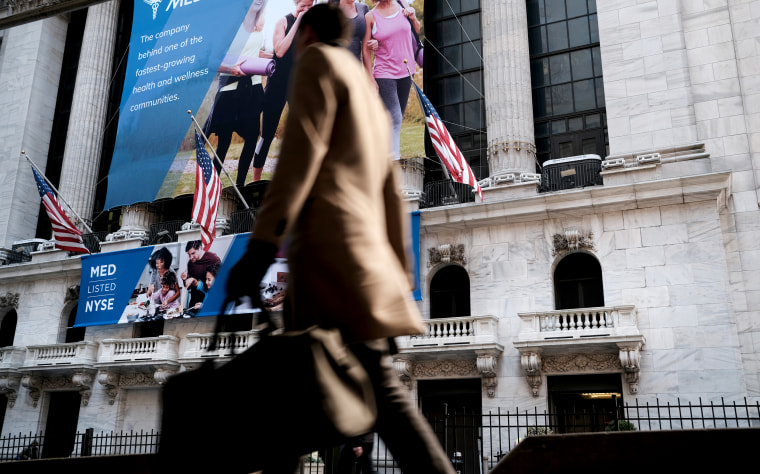Economists now say it is increasingly likely that virus-related financial fallout will spill over into the second quarter, cutting into GDP growth and potentially even dragging the American economy into recession — although most are still hopeful that a worst-case-scenario can be avoided.
The biggest unknown is still how, and how severely, the novel coronavirus, dubbed COVID-19, will spread in the U.S.
“The stock market is anticipating the fact that Q2 will be quite a bit lower than Q1,” said Chris Zaccarelli, chief investment officer for Independent Advisor Alliance. “It’s just the expectation that we get a big outbreak in the U.S., which is not unlikely at this point.”
“What we don't know yet is just how panicky people will become as the number of cases in the U.S. rises,” said Jamie Cox, managing partner at Harris Financial Group. “I do think the effects on the economy are going to be sharp for a very short period of time,” he said.
“I would say for the short run, that consumption is still going to be strong but travel and tourism is going to be a drag on GDP for sure. Inventories are going to drop. I think the first set of data that we’ll receive for this period of time will show steep drops,” Cox said. If Chinese factory activity recovers by mid-April, he predicted, longer-term economic damage could be mitigated.
In the meantime, though, analysts said last week’s market turmoil reflects looming anxiety for the next quarter as well as the current one. “It’s no longer just a Q1 event,” said Mark Zandi, chief economist at Moody’s Analytics. “The first half of the year will be a washout. Hopefully, we’ll get a lot of it back in the second half of the year,” he said.
As recently as a couple of weeks ago, the White House economic report predicted 3.1 percent GDP growth for 2020. Hitting those targets now will be all but impossible, economists say.
“I think 3 percent growth for 2020 is not going to be possible this year,” Zaccarelli said. “I think for 2020 as a whole, we could have expected a low 2 percent GDP growth prior to the coronavirus. That has to be revised lower,” he said.
“I think it’s going to chop off 1 percent of GDP growth in the first quarter, and we’ll probably have a quarter where it’s relatively flat,” Cox said.
Zandi said contraction in manufacturing and muted wage growth indicate fault lines beneath strong unemployment and consumer spending data. “The economy came into this very vulnerable,” he said. “This characterization of the U.S. economy as strong was not correct. The trade war did a lot of damage.”
“This characterization of the U.S. economy as strong was not correct. The trade war did a lot of damage.”
Zandi said investors can look for a rebound driven by a combination of pent-up demand and intervention by policymakers in the U.S. as well as globally. Central banks around the world have pledged to use the tools at their disposal to mitigate the economic impact, but slowing global growth had already diminished their effectiveness even prior to the spread of the disease.
Policy tools around fiscal stimulus are more varied and would likely provide a more effective response, but enacting them in a bitterly divided Washington, D.C. will be a challenge, Zaccarelli said.
“What would be most beneficial for the economy would be for Congress and the executive branch to enact some kind of fiscal stimulus program. That’s a very difficult thing to get done,” he said. “Clearly, with the partisan discord, it’s very difficult for people to reach across the aisle to do anything.”
Market observers said there is an outside chance that cascading impacts on supply chains, jobs and consumption could tip the U.S. into a recession later this year.
“Our base case is not negative GDP growth, but that’s a possibility,” Zaccarelli said, adding that the second quarter is likely to bear the brunt of the virus impact. “You have to expect a sub-one percent number for Q2 under probably most scenarios,” he said.
“This is a particularly pernicious economic shock because it’s hitting the supply side as well as the demand side,” Zandi said. “That’s why Q2 now looks increasingly iffy as well.”
“The odds of recession now are about even. If the Centers for Disease Control and Prevention is right and this becomes a meaningful pandemic and shows up here to the point that we’re closing schools, it’s going to be pretty tough to avoid a recession,” Zandi said.
